The Seductive Dive into the Underbelly of Desire and Escapism in Ed Brubaker and Sean Phillips' Night Fever
Brubaker and Phillips enter some real Hitchcockian territory, exploring an ordinary man entering into extraordinary circumstances.

It seems easy– sneak into an underground party using someone else’s name off of the guest list. It’s a quick and hopefully, pain-free escape from your own life, as boring but solid as it may be. Two kids, a wife, and a house in the suburbs– that’s the American dream but is it enough? If you read enough Ed Brubaker and Sean Phillips’ comics (Criminal, Reckless, The Fade Out…) it’s easy to understand the desire to be an outlaw– it isn’t about breaking the law as much as it is living outside of the confines of the law. It’s this nagging fear that the American dream is being a cog in a machine, not really living until you’ve broken someone’s nose with your fist or gotten away with the heist of a lifetime. Brubaker and Phillips’ comics aren’t cautionary tales as much as they are stories that show us the cruelty of life outside of norms and laws as if that’s just what life is. That’s the normal state of existence and anything else is an abnormality to that status quo.
In their newest book Night Fever, Jonathan Webb is at that point of his midlife crisis where instead of going out to buy a Corvette, he wanders into a French underground party and enters into a whole new world. It’s not the type of party that Jonathan Webb could ever get into but someone named Griffin walks through this world effortlessly. To Webb, “Griffin” is just a name on a guestlist, an easy lie for Webb to say that he’s Griffin to get in the front door. It’s just another mask, like the one he’s given for the party to circulate among the beautiful people and their sex, their drugs, their lawlessness. For the night, Webb is Griffin and he’s one of them. And then he meets Rainer, who shows him more of this hidden world, and takes him deeper and deeper into it until Webb can barely remember the wife and kids that are waiting for him at home, almost starting to believe that he could be this Griffin.
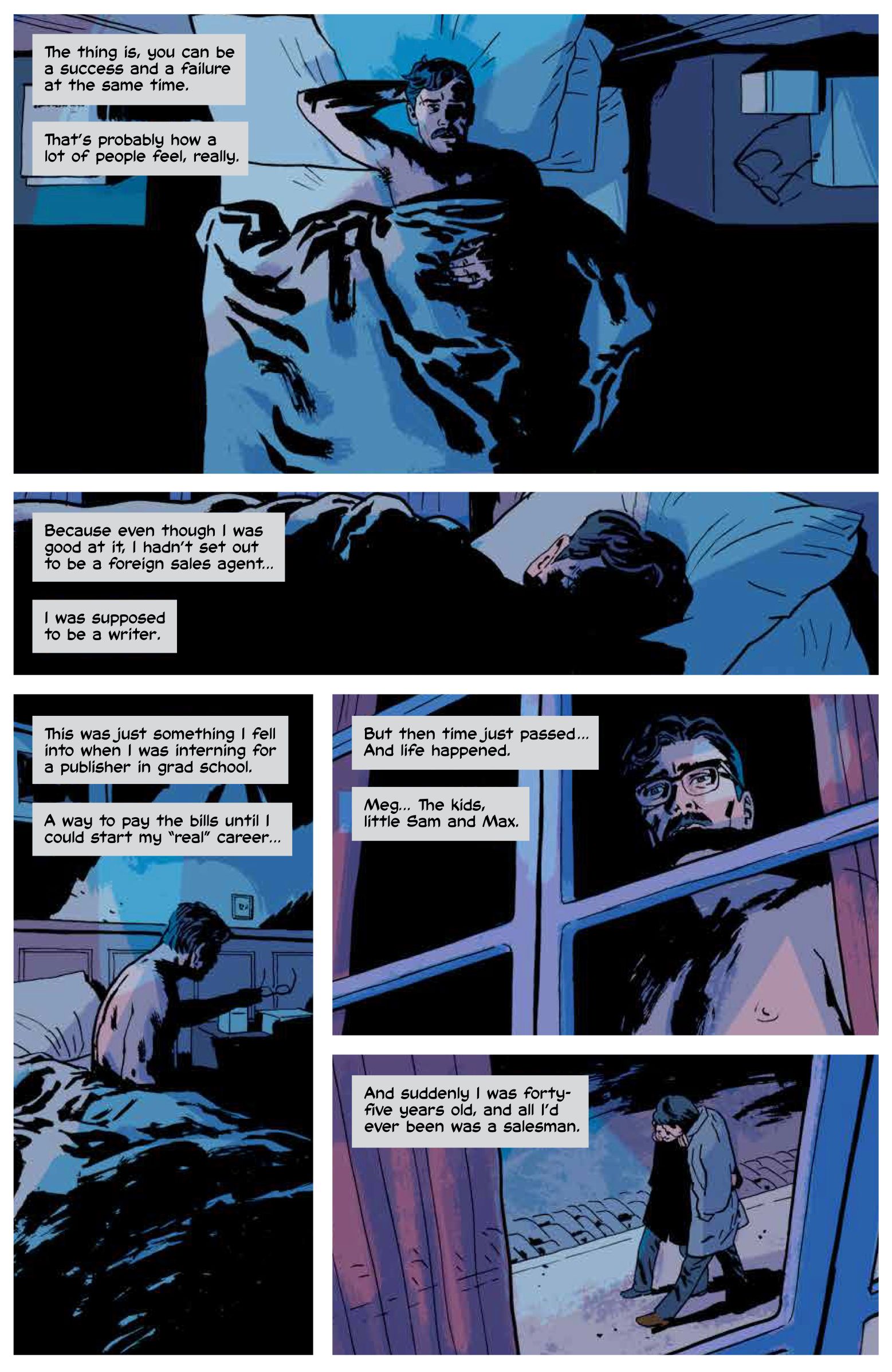
This feels like a different kind of story for Brubaker and Phillips; certainly different in tone and scope than the Reckless series that they’ve spent the last couple of years working on. There are the standard hallmarks of their stories- the view of life from an outside perspective– but this book, with Jacob Phillips’s seductive colors, is less concerned about the plot and how it moves from point A to point B before finally reaching point C as it is fascinated with creating a tone and a mood for these characters to inhabit and navigate. Webb is a man who’s chasing a feeling; he’s not some career criminal who’s out just for himself. He’s hit a point in his 45-year-old life where there’s this nagging thought in the back of his mind that there’s got to be something more. And he finds it at a party beneath the streets of Paris, but he’s still a 45-year-old man, wearing his glasses over his mask as he’s not able to completely shed who he is. He thinks he blends in perfectly, with no one realizing that he’s an impostor. But the glasses keep him from ever fully becoming the Griffin that he imagines himself to be.
The pair of Sean and Jacob Phillips create a dream-like atmosphere for this story. Through the hazy lavender tones of these French nights, we walk into a different world; it’s the difference between the waking world and the sleeping world. This is a book that has the main character trying to find himself in the quiet moments. It’s easy for Webb to get lost in the big, violent, and visceral times but in between those, Phillips draws these scenes often with just Webb and one other person where Webb is trying to figure out if he’s Webb or Griffin. You can flip to most pages and it’s just Webb/Griffin navigating the nights between these loud, bombastic events, talking to Rainer or someone else. Phillips finds as much, if not more, drama in these more contemplative pages as Webb tries to figure out just how lost he wants to get in this dream world.
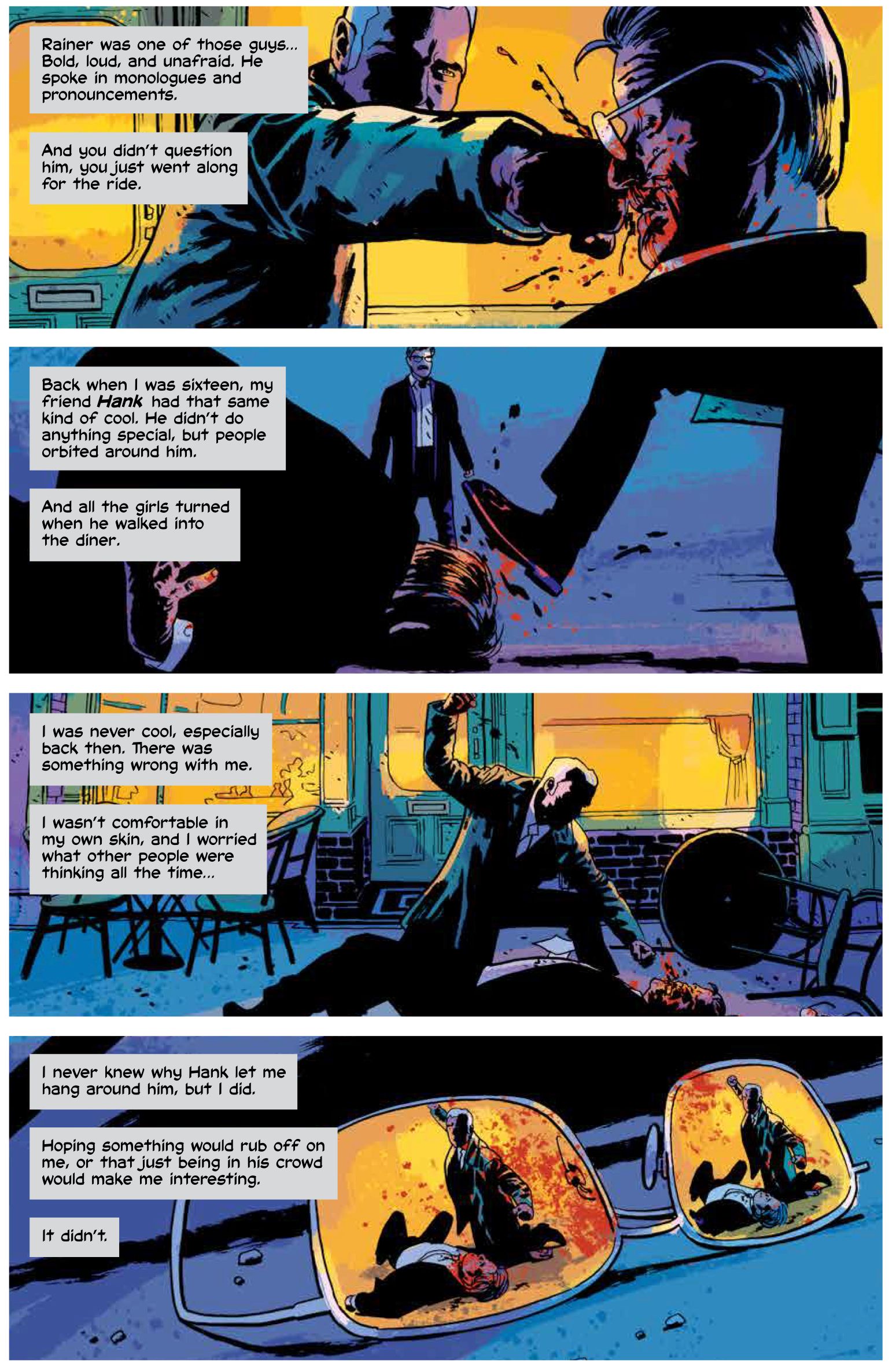
Brubaker’s writing wrestles with age, picking up threads from his and Phillips’ 2020 Pulp (reviewed over at Panel Patter.) But where the older story was exploring age from the end of a life, this one is looking at it from the middle, when there’s still some chance of change, a chance of something new to happen. Jonathan Webb has one foot in this world and one foot outside of it. He’s unquestioningly open to the seduction that the night and Rainer offer to him. A coworker flat-out tells him that he has the life that most of them want. “You’re livin’ the dream… House in the suburbs… Picket fence, family… the whole deal… You made it, Jon,” she says as he brushes off his accomplishments. He’s got the life and that’s not enough for him.
Using that malaise, Brubaker enters some real Hitchcockian territory (maybe blended with a bit of Scorcese’s After Hours,) exploring an ordinary man entering into extraordinary circumstances. But for Brubaker, the extraordinary is either some kind of seduction or addiction here. Maybe it’s both. Webb gets a hit of another life and suddenly it’s all he wants. He is looking both forward and backward in his life and trying to figure out which one he wants more. He knows which one is more exciting and gives him a thrill and he risks everything to stay in that world a little bit longer. Even as the experiences lead to him starting to lose touch with reality (drugs will do that to you!), the life that Rainer shows to him has a pull on him. “And I’m not even going to pretend that I didn’t want it to go on forever… With the chosen ones… Where I clearly belonged.”
This being a Brubaker/Phillips joint, nothing is ever that simple. Ed Brubaker and Sean Phillips take us on this journey into the darkness and challenge us to find our own way out of it. The mirror that Night Fever holds up to the reader is a reminder that our lives should be re-examined; it just shows us how badly that kind of re-examination could go.
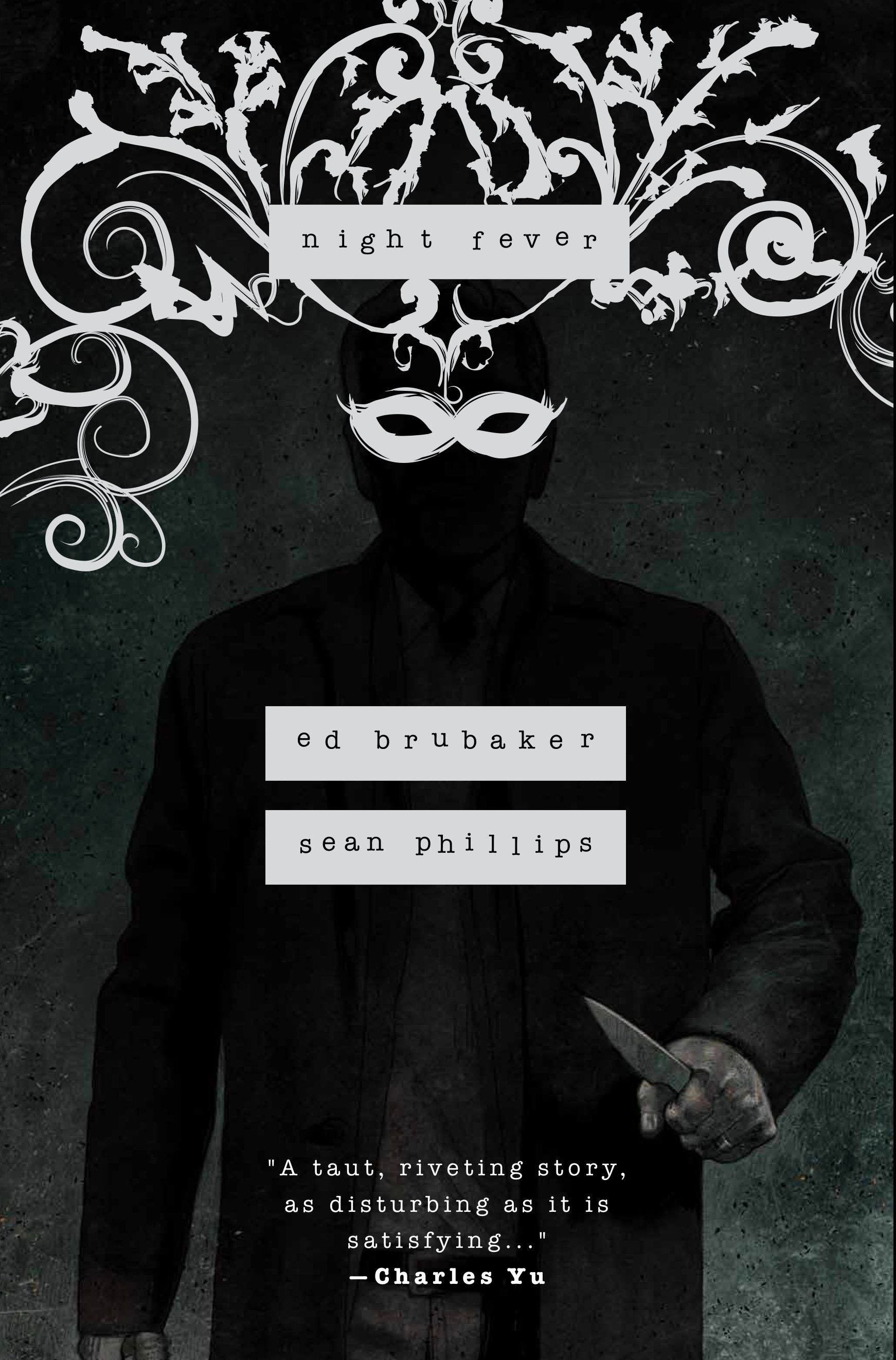


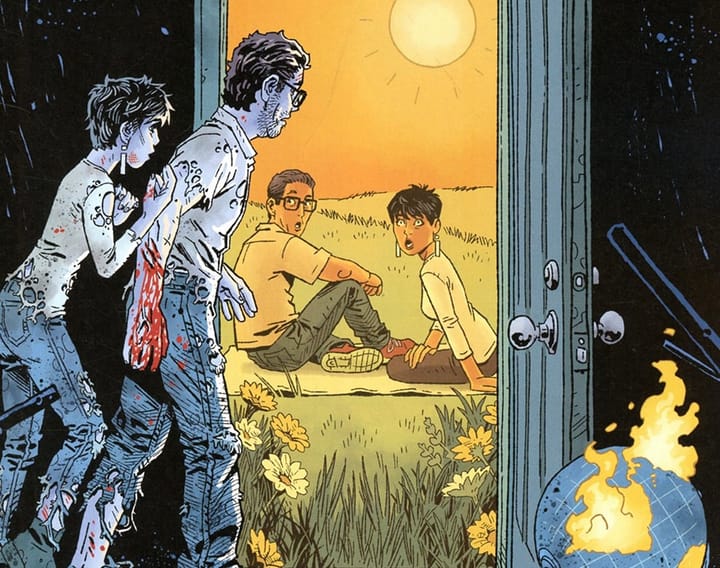
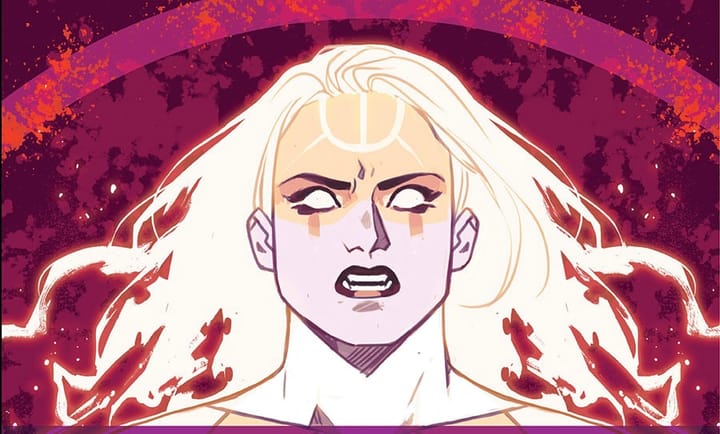
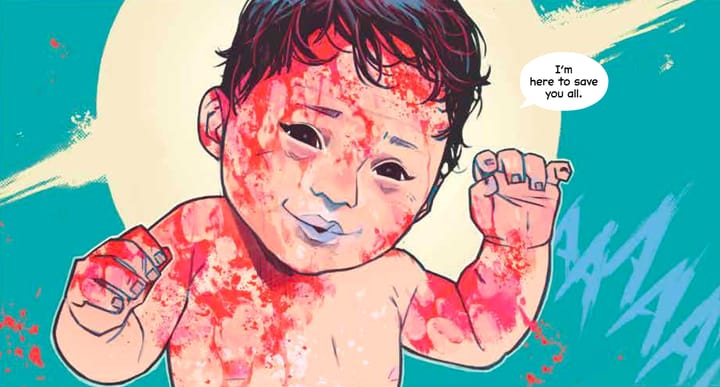
Comments ()